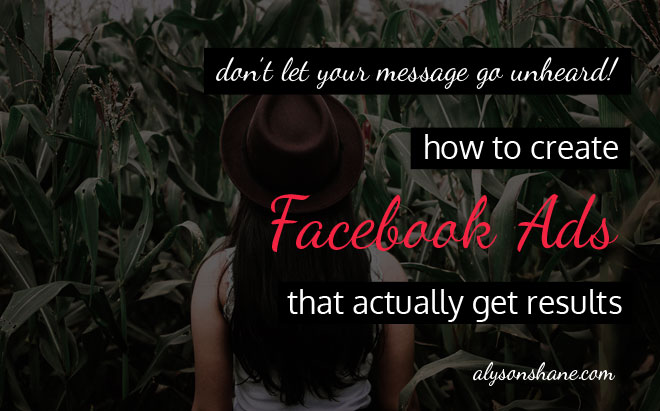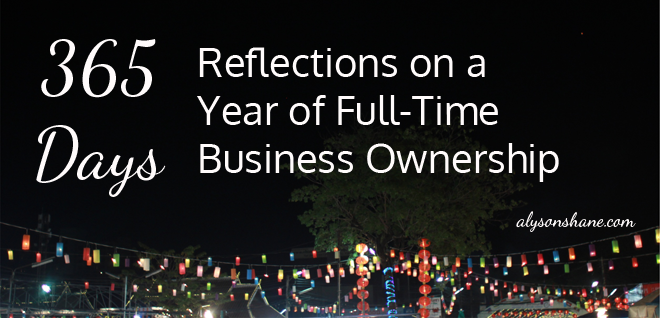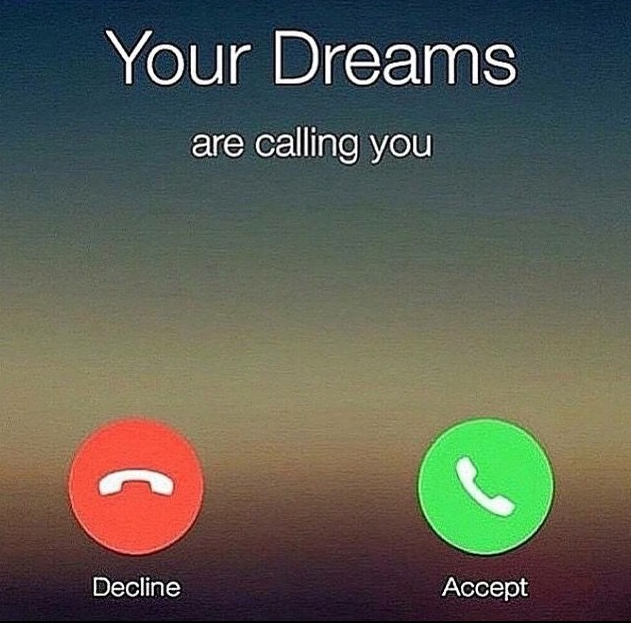July 2016
How to Create Facebook Ads That Actually Get Results
- by Alyson Shane
Facebook is the world's largest social network with more than 1 billion worldwide users, and it's an important social network for businesses to be able to connect with their audiences and share their content.
However, recent changes to Facebook's "timeline" feature presents a challenging problem: many businesses depend on Facebook to connect with their audiences and Facebook's organic reach has been steadily declining. In fact, the company recently announced that it would be curating users' timelines to show even less content from Pages (the business equivalent of a Profile) than ever before.
Shock! Panic! Is this the end of Facebook for businesses?!
Well... no, not really. All it means is that we have to start changing our tactics to meet the shifting demands of the social network, which means spending more time to reach the same number of people that we once (easily) reached for free.

Is Facebook still worth it?
For businesses with Facebook Pages this news may leave you feeling frustrated; after all, now you'll reach fewer people when you publish new content than you did previously. However, it's important to note that users who regularly engage with your posts by liking, commenting, and sharing (aka your "hardcore fans") will still see your content on their timeline on a regular basis.
While this shift in timeline content may feel discouraging, it's important to note that Facebook's users continue to increase every year, which means that it's still a growing and powerful network that deserves your time and attention.
With this in mind, there are basically two things you can do to increase visibility:
Encourage users to share your content
I recommend this to everyone I work with; getting users to share your content is an easy (and free!) way to reach a wider audience and encourage people to like and engage with your page. Contests, promotions, and timely, informational content are all ripe for sharing, but creating this content takes time and isn't all that reliable, because it's difficult to predict exactly what will resonate and get shared, and what won't.
So while I work this kind of content into every content calendar I manage, I strongly encourage my clients to consider...
Paid Facebook Advertising
Facebook's page advertising platform is incredibly powerful, and one of the reasons that I love it is that you can reach a large targeted audience on a daily basis very easily.
Let's say for example you want to promote your restaurant's newest dinner feature. You can use Facebook's Ad Manager to target people in your city with upcoming birthdays and anniversaries who like steak, wine, locally-sourced food, and earn an average annual household income of between $75,000 - $100,00.
Facebook Ads allow you to target exactly the kinds of users you want to see your ad, meaning you get you a direct connection with the kinds of people you want to be coming into your restaurant.
This is the biggest benefit from Facebook advertising: instead of creating a one-size-fits-all ad and hoping that it works, you can target users who live in a specific area, or who have already expressed interest in similar products or services to the ones you're selling.
While many people may still feel frustrated with online advertising, they'll still stop and click on a link if it interests them enough.
Getting started
Every business is unique, and their audiences are unique and will respond differently to different messaging and images, and part of effectively using Facebook Ads is simply making the investment and experimenting with different ads to see which ones will resonate best with your target audience.
With that in mind, here are a few things to remember as you start wading into the big, wide (or small and targeted) world of Facebook Advertising:
- Do your research. If you don't know how to create a buyer persona for your business then check out this post on the subject, then get to making those ads. Otherwise, you won't have any idea who you should be targeting, and you'll waste valuable dollars figuring it out.
- Be patient. As I said, generating the kind of long-term sales and click-through rates that most businesses are looking for takes time. Some campaigns will perform wonderfully; some may flop completely, but it's staying committed to it and learning as you go that will generate real results.
- Test extensively. There are lots of ways to reach the same groups of people: where they work, where they went to school, what their interests are, which Pages they like, etc. Experiment with targeting different interests and see what happens!
- Change up your images. I rarely run a Facebook Ad campaign with fewer than three photos because I like being able to compare and see which kinds of images did better. Not only does this help me understand which images resonated better with people, but it also helps me know which images not to use the next time around.
One last thing...
It's important to remember that a single Facebook Ad won't produce brilliant results overnight. Like social media, blogging, or any other form of advertising (online or otherwise) these things take time. It's a much better long-term business strategy to allocate a monthly "ad spend" budget, and cycle through and try different kinds of ads to see what works.
However, if you can tap into your audience's needs and interests then Facebook Advertising is one of the most powerful weapons in your marketing arsenal, so why not give it a try? (and if you need a hand, drop me a line - I'm happy to help!)
Do you have any tips for Facebook Advertising? Tell me in the comments!
Reflections on 365+ Days of Business Ownership
- by Alyson Shane
A few weeks ago I passed a significant personal and professional milestone:
June 30th, 2016 was my one-year anniversary as a full-time business owner.
The past 365+ days have been an incredible journey; I've learned a lot, made mistakes, discovered a lot about myself and my life has changed in so many ways that it felt appropriate to share some of the things I've learned this past year with all of you:

It's okay to not be a "good employee"
I'll be honest with you: I used to get depressed when I thought about my career. Even after going to university and working roles that were actually in my field (instead of being an accountant, oh my god) I'd still hadn't found a job that did it for me. I'd think of all those years ahead of me, likely spent in dull offices, trying to find a position or organization that hopefully wouldn't bore me to tears after six months and it was so depressing.
I also had a lot of anxiety around being a "good employee." I didn't like sitting at a desk for a pre-determined amount of hours, asking for permission to take an extended lunch or book an appointment, taking a vacation, or playing office politics (ugh). I'm also not afraid to stand up for myself and point out when I think something unfair or just plain wrong, which doesn't bode well in the world of 9-5's.
So what feels different? The biggest thing is that while I'm beholden to my clients, and I technically have more "bosses" now than I did before, we have a mutually respectful relationship which can be hard to find in the office world.
I'm honest with my clients, and they rely on me to create the right content and steer them in the right direction, which results in a level of respect and collaboration that I was never able to enjoy when I worked for someone else.
Your value isn't just tied up in your qualifications
Before I went to university the advice everyone gave me was "you have to go to university! You'll never be able to get a decent job if you don't go to university!" So that's what I did. I spent three years at the University of Winnipeg earning my Bachelor of Arts, and you know what? Not one of my clients has ever asked me about my formal education.
To be clear: I am in no way saying that getting an education isn't worth it. University was an amazing experience, and I learned a lot, but when it comes to running a service-based business my experience has been that it's more important to be able to demonstrate your value and your skills than it is to have a piece of paper that declares it for you.
Instead, people look at my website, blog, social feeds, and where I've been published or asked to speak to see examples of my knowledge.
You can say no to things that you don't want
One of the most empowering things that I've learned in this past year is to say "no" when something doesn't make me feel good. I don't take on projects that I don't want, and I don't work with clients that I don't like.
This is incredibly hard to do; we're conditioned to believe that every opportunity that comes our way may be the last, and especially when you're new to being a solo business owner it's hard not to think "if I don't take this, will I regret it? Why am I turning down money? Who in their right mind turns down money?!"
Except money isn't the key to happiness. Instead of chasing money, I chase value. I've turned down opportunities that could have resulted in a nice boost to my bank account, but which would have made me miserable, and I don't regret them at all. Instead, I focus my energy on finding opportunities and work that are more suited to my tastes and personality, and it feels amazing.
Irregular income takes some getting used to
Before I started working for myself I would say things like "I could never go from biweekly payments, it's so scary!" and you know what? It is, and it takes some getting used to.
Being paid on a monthly or irregular basis means that I have to pay more attention to my bank balance than I did before, but since I was planning to leave my 9-5 I spent a few months building up a nest egg which rolls over from month to month. That way I know that I have enough to cover my living expenses for a few months if a bunch of work dried up at once.
However, I think that this is worth mentioning: even though I get paid irregularly, diversifying my income feels more secure than a single job ever did. When I worked for someone else if I lost my job 100% of my income was gone, but now if I lose a client I just hustle a bit harder and find another one to replace that dip in my income.
Also, as I said above since all of my earning potential is wrapped up in how hard I work it often means that I make double or triple one month what I made the previous one.

The freedom of managing your life is the most worthwhile thing
This is the single biggest takeaway that I can share with you.
I grew up believing that my work was just a means to an end; that I shouldn't expect to like my job or my work and that sitting at a desk doing uninspiring things for 40 hours a week was all I could ever hope for out of my life. This is such utter bullshit, you guys.
I've enjoyed a year of having the freedom to choose the work I want; to take an afternoon off to go shopping with a friend; to work on a Sunday or during the evening; to take a 3-week vacation to Central America and to work on the road.
I do what I want and am building my ideal life on my terms, and I get to grow something amazing and completely my own all from scratch. The work I do is fun and rewarding, and most importantly it makes my clients feel good, too.
Personal takeaways from 365+ days
I used to feel trapped by my life.
I didn't know what I wanted to do, where I wanted to go professionally, and I felt shackled to a corporate work and life that I resented and which, frankly, wasn't a good fit for me. It wasn't until I started building my client list and hanging out with other creatives and entrepreneurs that I realized that doing the thing that you love for a living is the key to being truly happy all the time.
The past 365+ days have been an exercise in un-learning a lot of things that I thought I knew about my value as a person and a creative professional. I've also learned so much about myself and have developed such a deep appreciation for my life that I can barely put it into words. It's been an exciting, challenging, and rewarding experience that I wouldn't trade for anything.
Thank you to my fantastic partner John, my incredible and supportive friends, and to my clients who do me the honour of working with me.
